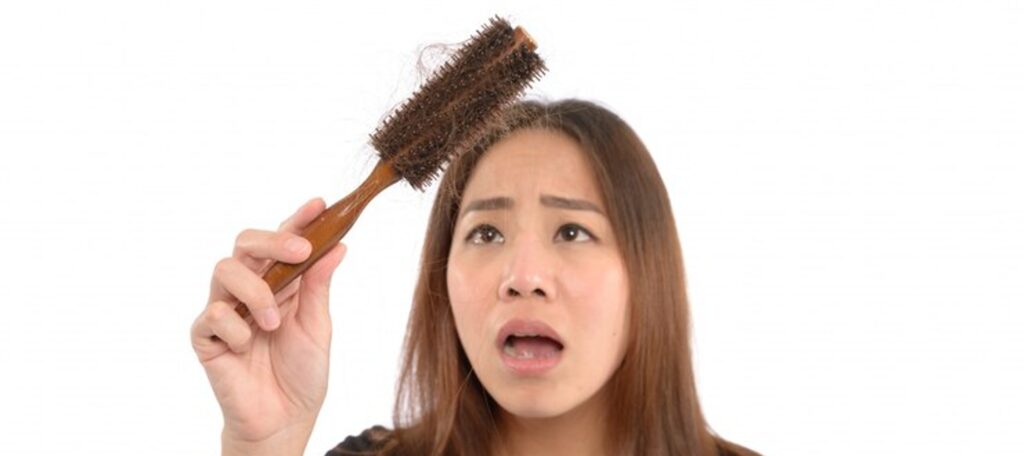As women over 40 begin to notice their hair change, many women in this age group begin to experience a different reality. It is not as significant as grand hair loss, but that fuller-looking mane might feel thinner or the ponytail seems less voluminous. This is normal! Hair loss in women over 40 is a popular concern, and it is a result of different factors. Nonetheless, some steps can be taken to resolve the problem and maintain healthy hair. If you want to know about the best hair loss treatment in Hyderabad, read this blog.
What is the reason that women over 40 get hair loss?
The cause of hair loss varies with individuals, and sometimes it’s a combination of factors. You may wonder what the causes are. Though there are not any hardcore reasons for all, there are some common factors as well. Well, here are some of the most common culprits for women over 40:
Hormonal Shifts: With increasing age, the hormone levels in our bodies are gradually decreasing. But how does it happen? As menopause approaches, estrogen production decreases, and this can cause hair growth to be hindered. This might be the case with women too, and they can have a receding hairline just like some men.
Genetics: Similarly, one can inherit the tendency to go bald or experience hair loss from either of the parents, just like eye color or height. Yes, your genetics can make a great deal. If your mom or grandmother was losing her hair, then you probably also have this characteristic.
Stress: Okay, we have to admit that sometimes life can get a little stressful! Chronic stress is a risk factor that can affect our bodies in various ways, such as stress-related hair loss. Our stress level has a great link with hair loss. How? When we’re stressed, hair growth might be slowing down as a result of our bodies shutting down.
Diet and Nutrition: The hair requires vitamins and minerals, and the presence of those is essential for healthy and strong hair. Lack of iron, vitamin D, or B vitamins can be a factor in hair loss.
Medical Conditions: Besides general causes, such as thyroid diseases or scalp conditions such as psoriasis, they can also lead to hair loss.
Medications: Some drugs, for example, antihypertensives or antidepressants, can cause hair loss as a side effect.
Taking Charge: Handling Hair Loss
The first stage in the path to hair loss is to find out what is causing it. Then what should you do? Discuss your situation with the doctor. He will probably advise you further. After doing a proper evaluation, rule out any potential underlying medical conditions. Therefore, they can recommend the most appropriate treatment.
Here are some additional tips that can help promote healthy hair growth:
Diet: Make sure you are taking a diet that is rich in fruits, vegetables, and whole grains. These foods provide the vitamins and minerals your hair needs to grow healthier. What about the other nutrients? Keep in mind that protein shouldn’t be omitted as well since it is the main element for building strong hair strands.
Supplements: If your doctor suspects a deficiency of the recommended nutrition, they can recommend that you take a precise vitamin or mineral supplement. As you know, a lack of nutrients can also lead to hair loss.
Gentle Hair Care: Treat your hair with tenderness! Be careful with harsh chemical shampoos and those hot styling tools and tight braids that the hair fall out or weaken.
Scalp Care: An unhealthy scalp can cause several problems, including hindering hair growth. Just the same way, massage your scalp to improve circulation, and if you have to, use a gentle scalp scrub to remove dead cells.
Stress Management: Discover productive ways to eliminate stress, for example, through running, yoga, or spending time with your family and friends.
Talk to a dermatologist: A dermatologist is a medical professional who is trained to diagnose and treat skin and hair disorders. They can offer consultations and treatment methods for hair loss.
If you are looking for a hair transplant, look for a hair transplant clinic in Hyderabad as per your choice.
It is crucial to be pragmatic about the goals you set for yourself regarding hair loss treatment. You can’t be too hasty and impatient. Most treatments will not give you a complete restoration of hair loss, but they will help slow down the process and encourage new hair growth.
